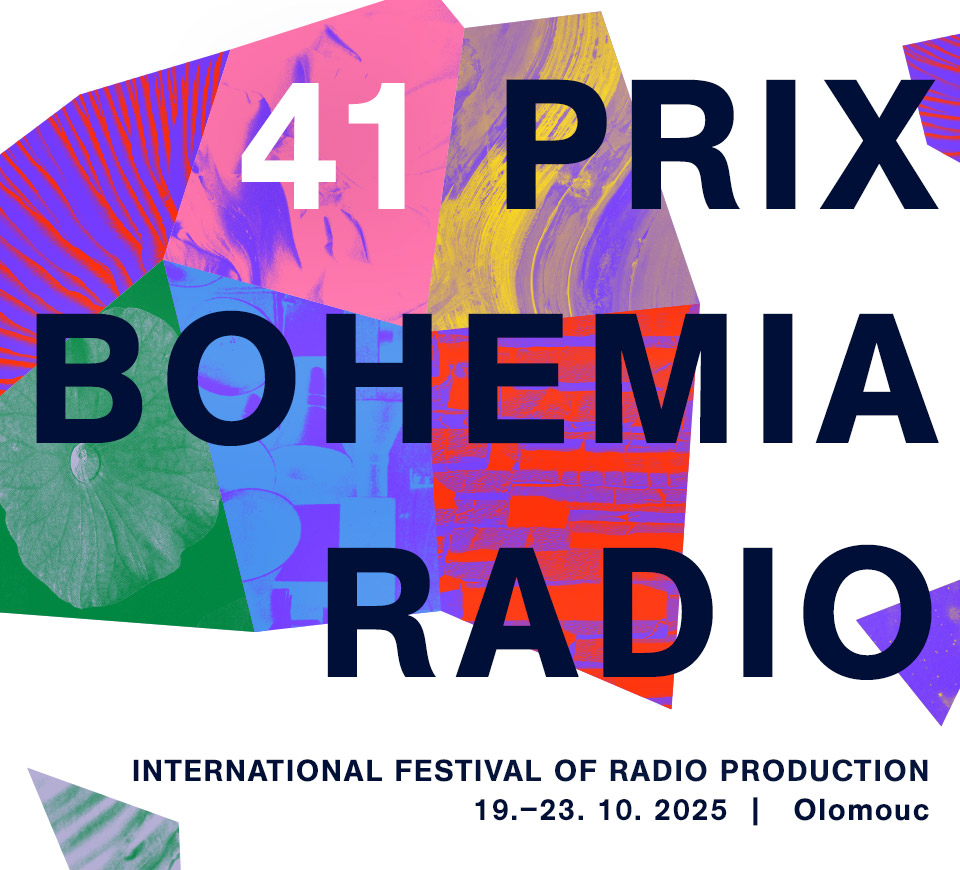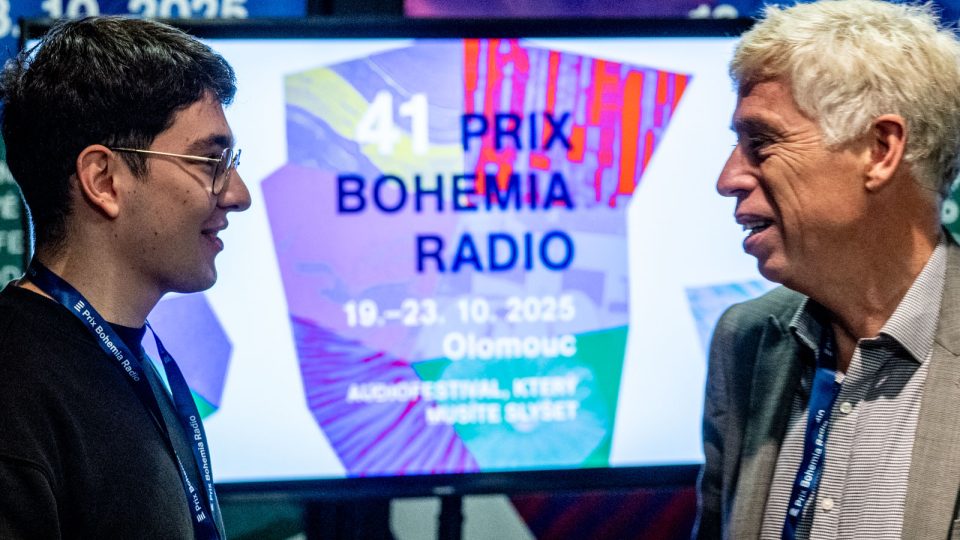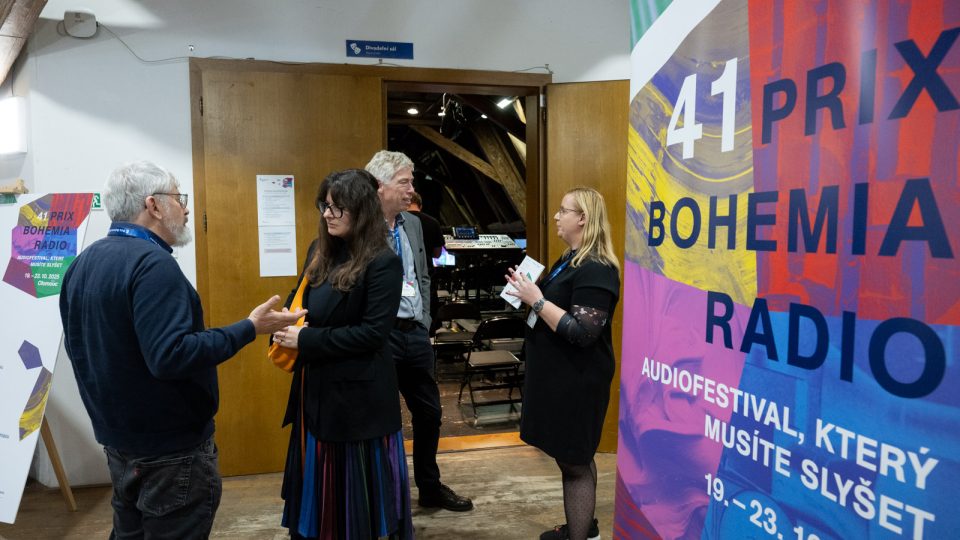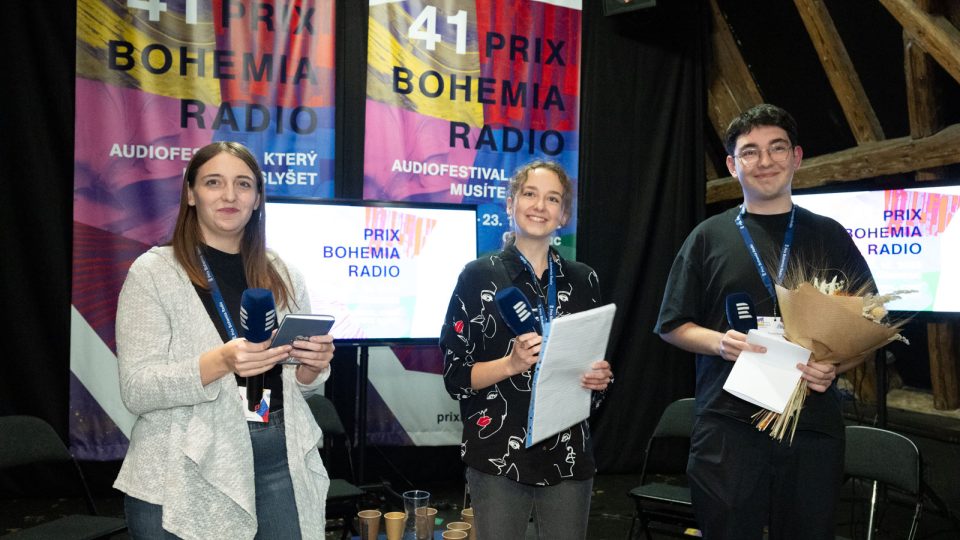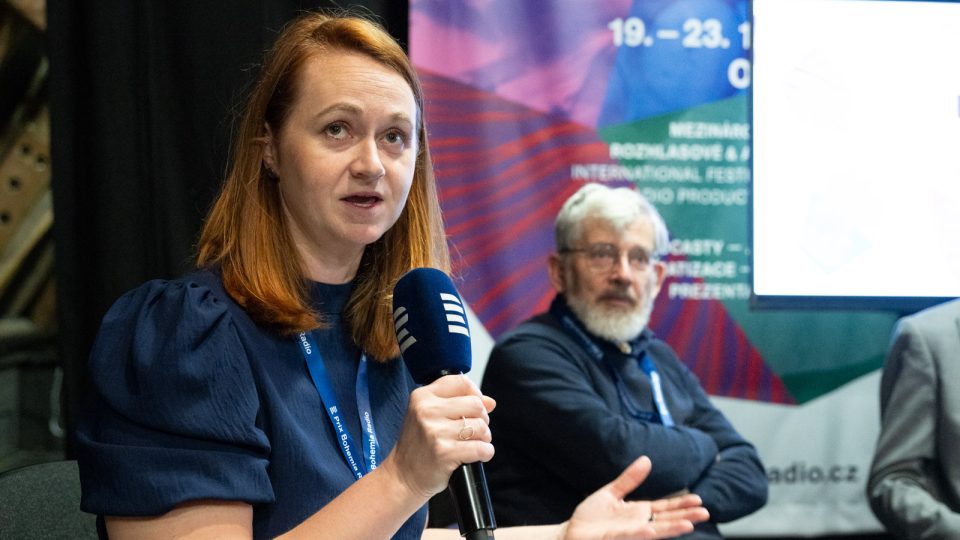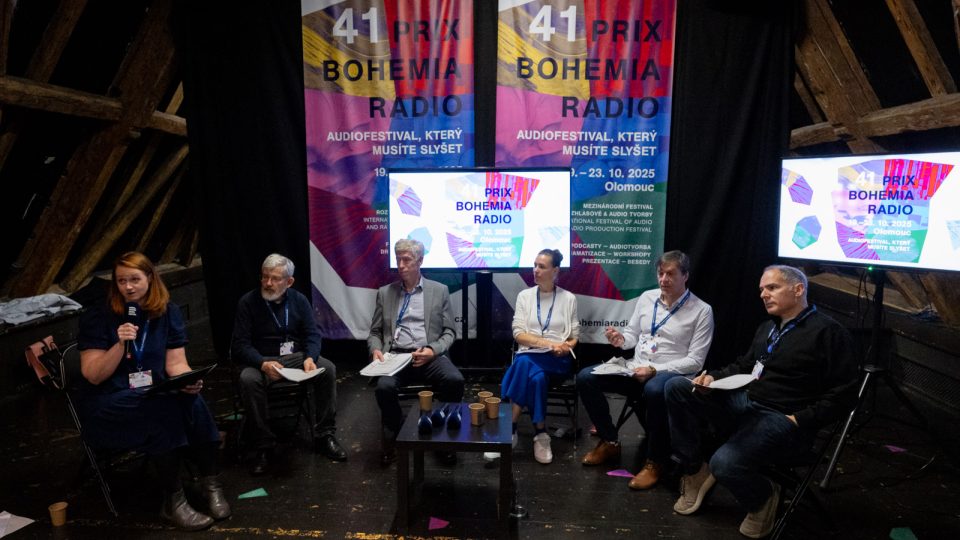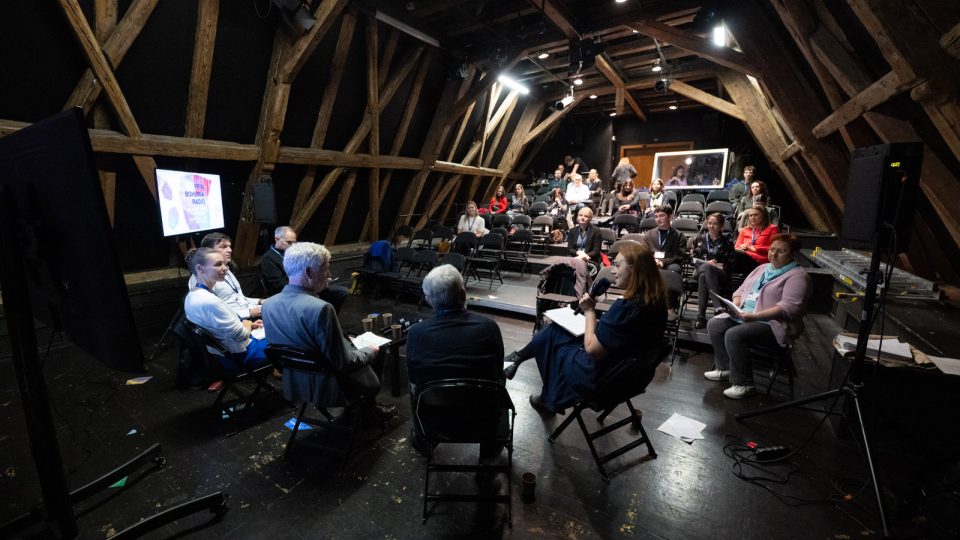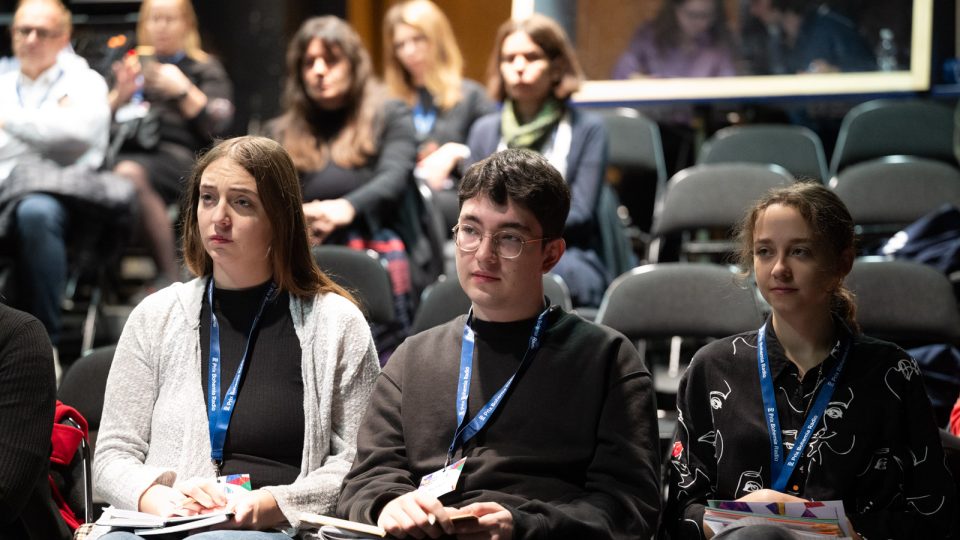The Third Day of Listening Brought a Flood of Emotions in the Theatre Hall at Olomouc’s Konvikt
On the third listening day of the Prix Bohemia Radio festival the audience heard 13 radio reports from corners of the world including Ukraine, Armenia, Poland, Austria, Lithuania, Slovenia—and of course, the Czech Republic. Each piece covered an interesting topic and resonated across cultures. The sessions and discussions were hosted by Pavlína Nečásková.
The day opened with a report by Martha Georgiew (ORF) titled “Bulgaria: Labor migration is causing the country to die out”, exploring the issue of population decline.
The second entry in the competition, “Permanent Address: Children’s Home – Samuel’s Story”, evoked empathy and sorrow among the audience. However, the jury noted that the report lacked ambient sounds that could have deepened the listener’s sense of Samuel’s world. “ Thanks to this report, people wanted to help him. Some even wanted to buy him soccer cleats,” explained author Veronika Hlaváčová (Czech Radio).
An AI Interview Provoked Emotion
The third report sparked controversy among the judges as Polish Radio’s Antoni Rokicki included a “conversation” with artificial intelligence. While some jurors found the approach inventive, others objected. The piece, “I don’t owe anyone anything”, described the life of Ukrainian taxi driver Sergiy in Poland.
The report A Day Odesa Under War by Diana Popkova (Suspilne Ukraine) impressed listeners with its professional production and thoughtful sound design. The jury praised the natural blending of languages, the authentic sounds of the city, and the clarity of composition that transported the audience directly into the reality of war.
Štěpán Macháček from Czech Radio brought deep emotional resonance in his report Druze in Golan Heights say goodbye to children killed in rocket attack. The jury highlighted the author’s sensitive approach, excellent structure, and his ability to connect personal tragedy with a broader context. Despite minor technical shortcomings, the piece was regarded as powerful and moving.
Juror Marianne Allweiss highlighted the social relevance and benefit of the next report Dental Services at Home by Lithuanian journalist Edita Vitė, noting the story’s contribution to public discourse on healthcare.
The closing report of the first block, “We Hope for the Best, We Fear the Worst,” came from Metka Pirc (Radio Slovenija). She recounted a tragic mining accident in Velenje, Slovenia: at the time of the report one miner died while two remained missing.
“Can you imagine how difficult it is to process such a story?” asked jury member David Jakš, currently director of Regional Studios for Czech Radio in Plzeň and Karlovy Vary.
Echoes of conflict
The last listening block moved to France, with Martin Balucha (Czech Radio) and his piece The French Story of an Unknown War Pilot from Czechoslovakia. The jury praised the use of authentic archival sound, though some noted minor issues with pacing and editing. Still, the report was lauded for reviving a forgotten piece of Czechoslovak history.
In the report Parajanov Is a National Legend of his Third Homeland – Ukraine, Anna Harutyunyan (Public Radio of Armenia) captured the jury’s attention with rich atmosphere and linguistic diversity. The author wove together different languages and managed to paint a personal portrait of the prominent filmmaker.
Fortress City: Three Years of Total War by Andrii Sokolov and Yuliya Nayda from Suspilne Ukraine impressed with its storytelling about a city and its people. The judges praised the authors for connecting individual stories to a broader image of war.
In How police officers coped with the intervention at Charles University's Faculty of Arts, Czech Radio reporter Marie Veselá gave space to the officers themselves to reflect on their experiences. Jurors remarked that the audio medium can convey such intimate stories more sensitively than visuals ever could. The student jury called the report emotional and deeply affecting.
The block concluded with the topic Romania: Why is the diaspora in Western Europe voting for anti-European candidates? by Markus Mueller-Schinwald (ORF). The jury highlighted its analytical approach, authentic language, and clear structure. Although the sound quality was not ideal, the report delivered a persuasive and timely political perspective.
A Festival of Encounters and Inspiration
The third festival day in Olomouc brought not only another round of competition listening, but also lively discussions between creators and jurors. Some authors attended in person, while others joined remotely. All shared the same experience: the joy of meeting international colleagues and exchanging ideas across borders.
“It’s my first time taking part in such an event. I have the chance to meet my colleagues from abroad and see how they work. I really value the opportunity to be here. I love the concept of this festival and I find it incredibly inspiring,” said Anna Harutyunyan from Public Radio of Armenia.
Antoni Rokicki from Polish Radio, a returning participant, expressed similar sentiments: “This festival is fantastic. There’s a unique atmosphere here, I felt it the very first time I came to Olomouc three years ago. What I like most is that the jurors are positive and open-minded.”
The authors are members of the student editorial board of the Prix Bohemia Radio festival.

